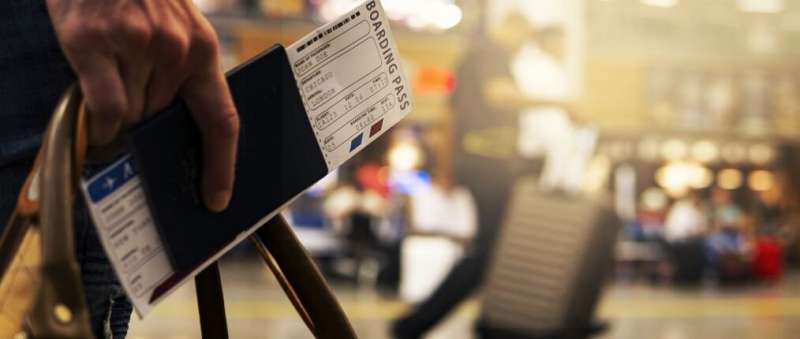Reducing crisis risk in tourism, hospitality

As borders reopen and a new wave of COVID-19 sweeps the world, international travel faces new challenges which must be addressed by internal reforms and restructures, according to business analysts in Australia and New Zealand.
The pandemic needs to be a catalyst for the tourism sector and governments to look at future strategies to balance citizen safety with survival of vital travel industries, they say in new article published in the Tourism Review International.
The latest lockdown in one of China's biggest cities, Shanghai, this month casts light on the ongoing situation, says co-author Dr. Sharif Rasel, Lecturer in International Business at Flinders University.
"One way tourism and hospitality operators and policymakers can prepare and reduce the vulnerability of the industry is to start vertically integrating operations with other related industries, such as agriculture, viticulture or the higher education and further training sectors," Dr. Rasel says.
This study builds on calls for further investigations into how tourism destinations plan for, and respond to, future global crises and disasters and the roles of political leaders, says first author Associate Professor Mulyadi Robin, from the Australian Institute of Business.
"The pandemic has offered countries the opportunity to undertake fundamental transformations in their tourism industry, especially in attempting to reboot both domestic and international travel numbers," he says.
"The border closures at the start of the pandemic were effective in saving lives and people will continue to look to their country's leaders for border and community protection during the pandemic and future crises," says corresponding author Professor Girish Prayag, from the University of Canterbury, NZ.
"At the same time, we know international human mobility has been the driving force of economic growth and policy decisions for the tourism industry," says Professor Prayag, also co-author of a book on tourism resilience.
"Border closures do have some economic implications," says co-author Dr. Mesbahuddin Chowdhury, also from the University of Canterbury.
"Governments around the world, including Australia and New Zealand, have started gradually to open their borders for international tourists to boost economic recovery," Dr. Chowdhury says.
"Hospitality and tourism industry must develop their own strategies to operate in current and future pandemics."
Already the success of promoting domestic travel during the pandemic has proved a successful strategy for sustaining employment, income and activity in the sector.
"Upskilling employees and retraining those who have been laid off for securing jobs in other industries are ways to make the economy and tourism industry more resilient," he says.
With international travel conditions still volatile, the researchers recommend further measures be taken to protect tourism and hospitality businesses while maintaining high levels of trust and compliance in COVID-19 protection measures across affected communities.
Using data from the World Bank and GLOBE Project, the study found closing borders to international tourist arrivals in 2019 played a leading role in saving lives in 2020, with other government protocols also moderating COVID-19 fatalities in countries where self-protection was accepted and expected.
More information: Mulyadi Robin et al., Did Closing Borders to Tourists Save Lives? Tourist Arrival, Self-Protective Leadership, and COVID-19 Casualties, Tourism Review International (2022). DOI: 10.3727/154427221X16317419620237
Provided by Flinders University




















